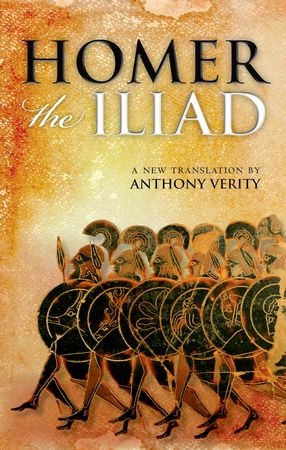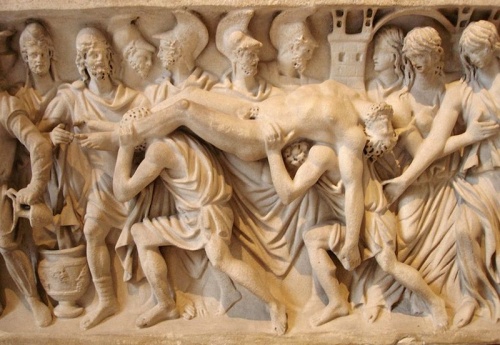 “War, the bringer of tears…”
“War, the bringer of tears…”
War, glory, despair, and mourning: for 2,700 years the Iliad has gripped listeners and readers with the story of Achilles’ anger and Hector’s death. This tragic episode during the siege of Troy, sparked by a quarrel between the leader of the Greek army and its mightiest warrior, Achilles, is played out between mortals and gods, with devastating human consequences.
It is a story of many truths, speaking of awesome emotions, the quest for fame and revenge, the plight of women, and the lighthearted laughter of the gods. Above all, it confronts us with war in all its brutality – and with fleeting images of peace, which punctuate the poem as distant memories, startling comparisons, and doomed aspirations. The Iliad‘s extraordinary power testifies to the commitment of its many readers, who have turned to it in their own struggles to understand life and death.
This elegant and compelling new translation is accompanied by a full introduction and notes that guide the reader in understanding the poem and the many different contexts in which it was performed and read.
In this Oxford World’s Classics audio guide, Barbara Graziosi, who wrote the introduction and notes for the new edition, and Anthony Verity, the book’s translator, introduce the newcomer to the world of Homer. To listen to the interview in sections, click on the links below. To listen to the whole interview, click here.
The World of the Iliad
1. The first problem presented by the Iliad is determining in what period it was written. Barbara Graziosi explains the challenge here. [1:15]
2. When was the poem first written down? Click here. [1:28]
3. Even to the very first audience for the Iliad, the time it evoked belonged to the distant past. Barbara Graziosi reflects on this here. [0:55]
4. Are there internal clues within the poem itself which help us work out more about its origins? Click here. [3:17]
5. Do we know where in the Greek-speaking world the Iliad was composed? Click here to find out. [2:06]
6. What sort of values does the culture that produced the Iliad display in the poem? Click here. [1:48]
7. The Iliad was composed to be performed. Can reconstruct the circumstances in which those performances took place? Click here. [2:48]
 Translating Homer
Translating Homer
8. Did the fact that the poem was originally intended to be recited influence Anthony Verity’s approach to translating it? Click here. [3:00]
9. Are there decisions you have to take before embarking on a major new translation about the kind of version you are aiming to produce? Click here to hear how Tony approached this question. [3:32]
10. Anthony Verity describes the experience of translating Homer and Barbara Graziosi relates this to the notion of the commitment demanded by the poem. Click here. [1:41]
In search of Homer
11. Barbara Graziosi explains that we know nothing about the figure we call Homer, though this has not stopped centuries of speculation about who he was. Click here to learn more. [2:21]
12. How does the voice of the poet come across in the poem and why has his vision sometimes been described as cinematic? Click here. [2:07]
13. Pathos is a striking way in which the poet makes his presence felt in the poem. Anthony Verity discusses some examples of this here. [2:42]
 Approaching the poem
Approaching the poem
14. Tony and Barbara here suggest ways of thinking about the Iliad to help orientate first-time readers. [3:46]
15. The world of the Iliad is a blood-soaked one. Tony and Barbara reflect here on the nature of violence in the poem. [3:07]
16. In this world of war and violence, how are female characters treated? Click here to find out [6:14]
17. Finally, we asked Barbara and Tony why they thought the Iliad had shown such extraordinary staying power as a literary classic for millennia. Click here for their views. [2:26]
